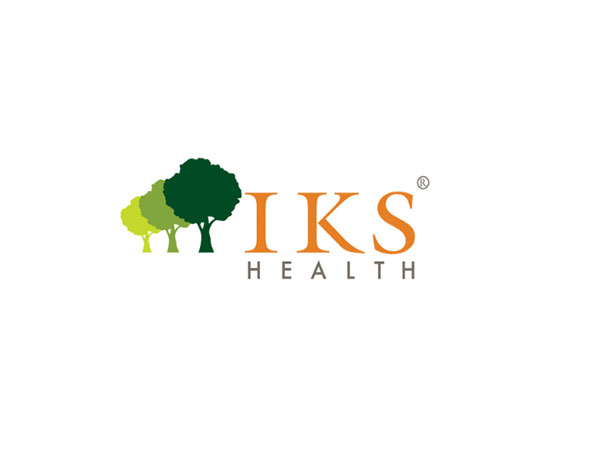Tips to Minimise Your Chances of Health Insurance Claim Rejection
May 07, 2025

VMPL
New Delhi [India], May 7: Health insurance plays a crucial role in safeguarding your finances during medical emergencies. However, even after paying premiums diligently, many individuals face claim denials that result in both emotional distress and financial strain. Understanding the factors behind such rejections and adopting preventive strategies is key to ensuring a smooth claims experience.
Here are six effective tips to minimise your chances of health insurance claim rejection and strengthen your position in case of a dispute.
1. Understand your health insurance policy thoroughly
Before purchasing health insurance, it is vital to read and comprehend the fine print. Insurers often define specific terms and conditions that can significantly influence your claim outcome.
* Know what is covered: Familiarise yourself with the inclusions and exclusions, such as pre-existing disease coverage, maternity benefits, daycare procedures, and specific disease waiting periods.
* Understand waiting periods: Most policies have a waiting period for certain illnesses or procedures, during which claims will not be honoured. Knowing these durations helps you plan your medical interventions accordingly.
* Review sub-limits and caps: Some policies include caps on room rent, specific treatments, or disease-related expenses. Any treatment exceeding the set limits may lead to a partial or full claim rejection.
* Check the network hospitals: Cashless claims are typically processed faster within the insurer's network. Using non-network hospitals may lead to higher documentation scrutiny and out-of-pocket expenses.
Having a clear understanding of these elements can save you from unpleasant surprises at the time of filing a claim.
2. Provide accurate and complete information at the time of policy purchase
Your health insurance claim may be rejected if the information provided while purchasing the policy is inaccurate or incomplete.
* Disclose pre-existing conditions: Hiding existing medical conditions, past surgeries, or ongoing treatments can result in claim denial for non-disclosure or misrepresentation.
* Declare lifestyle habits: Smoking, alcohol consumption, or occupational hazards must be declared truthfully, as they influence your risk assessment.
* Mention family medical history: If applicable, disclosing hereditary health issues can help the insurer assess your health risk profile better and build trust.
Remember, health insurance is a contract built on the principle of utmost good faith. Providing honest and detailed disclosures ensures a smoother claim process.
3. Maintain transparency during claim filing
When filing a health insurance claim, be meticulous in sharing complete and correct information.
* Attach all supporting documents: This includes the hospital discharge summary, doctor's prescription, pathology reports, diagnostic test results, and original bills. Each document must be relevant and correctly dated.
* Cross-check your claim form: Avoid typographical errors, missing fields, or mismatches between documents and the form.
* Submit medical justifications: If a procedure is not common or if it deviates from regular treatment norms, include a detailed explanation from your treating doctor.
Maintaining transparency throughout the claim filing process improves credibility and reduces the chances of unnecessary scrutiny.
4. Submit claim documents within the stipulated timeframe
Health insurance providers specify deadlines for submitting claim documents - particularly for reimbursement claims. Missing these timelines could lead to outright rejection or lengthy delays.
* Cashless claims: Intimation must usually be made 48-72 hours prior to a planned hospitalisation and within 24 hours of an emergency admission.
* Reimbursement claims: Most insurers require you to submit documents within 7 to 30 days after discharge, depending on their internal guidelines.
It's advisable to keep a checklist of required documents and consult your insurer or third-party administrator (TPA) to ensure nothing is missed.
5. Maintain proper records and communication
Well-organised documentation not only aids during claim processing but also serves as strong evidence in case of disputes or rejections.
* Store all original bills and receipts: Whether for pharmacy purchases or OPD consultations, preserving receipts is crucial.
* Track email or SMS communication: Keep a record of all interactions with the insurer or hospital, including claim submission acknowledgements and correspondence.
* Photocopy everything: Before submitting original documents, ensure you have a photocopy or scanned version for reference.
This discipline in recordkeeping empowers you to challenge wrongful rejections effectively and defend your claim with confidence.
6. Seek clarification from the insurer when in doubt
If you are uncertain about your health insurance policy's scope or encounter complications during the claim process, do not hesitate to contact the insurer.
* Use customer care or helplines: Most insurance companies offer toll-free numbers and email support. Clarify terms, required documents, or reasons for rejection directly from authorised representatives.
* Visit branch offices if needed: For more complex queries or disputes, an in-person visit can expedite resolution.
* Escalate grievances: If your claim is unfairly rejected, use the internal grievance redressal system. If unresolved, you can approach the Insurance Ombudsman for impartial adjudication.
Promptly addressing doubts and proactively communicating with your insurer can prevent procedural errors that might result in claim rejection.
Conclusion
Facing a health insurance claim rejection can be disheartening, but most rejections stem from avoidable oversights or misinformation. By adopting a proactive approach--starting with a thorough understanding of your policy, maintaining transparency, adhering to timelines, and keeping comprehensive records--you can drastically reduce the chances of claim denial.
Insurance is a financial safety net meant to support you during difficult times. Following the right practices ensures that your health insurance works as intended when you need it the most.
(ADVERTORIAL DISCLAIMER: The above press release has been provided by VMPL. ANI will not be responsible in any way for the content of the same)









